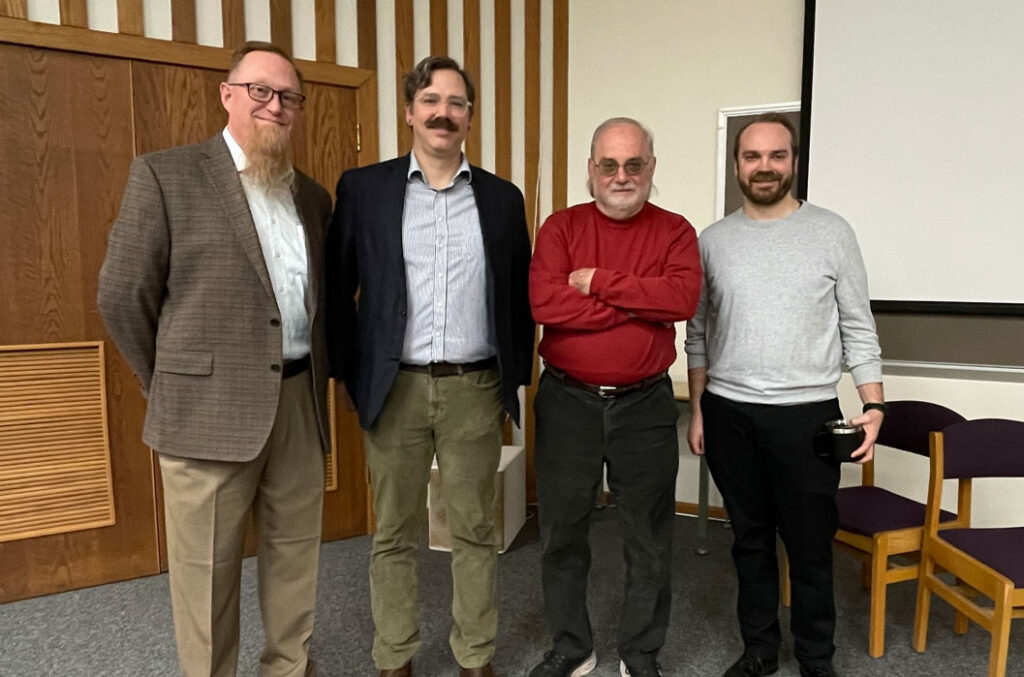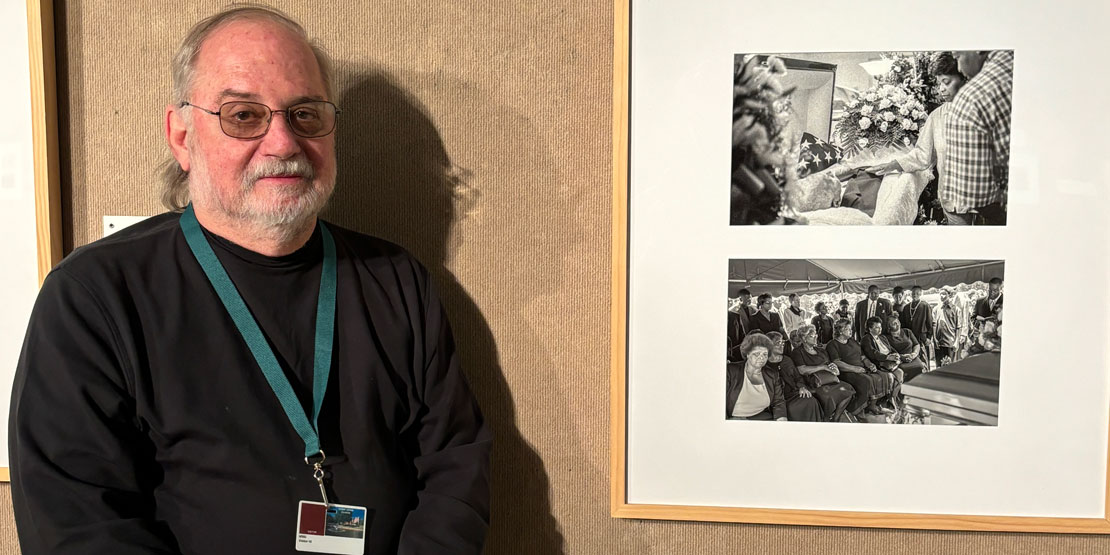It was 1988 and Richard Orton was looking for a new project. The Austin, Texas-based photographer was visiting his parents in Nacgodoches, Texas, in the northeast part of the state, when he learned of a community in an unincorporated part of the county that was settled over a century before by newly-emancipated African-Americans.
The community was called County Line. And it changed Richard Orton’s life.
“The first time I went to County Line, the day after Thanksgiving in 1988, I had no idea what to expect,” Orton told an audience of students, faculty and staff at William Woods this week. “All I wanted to do then was to get permission to photograph and learn about the community’s history. Little did I know that I had stumbled upon the project that would define my life for the next 25 years.”
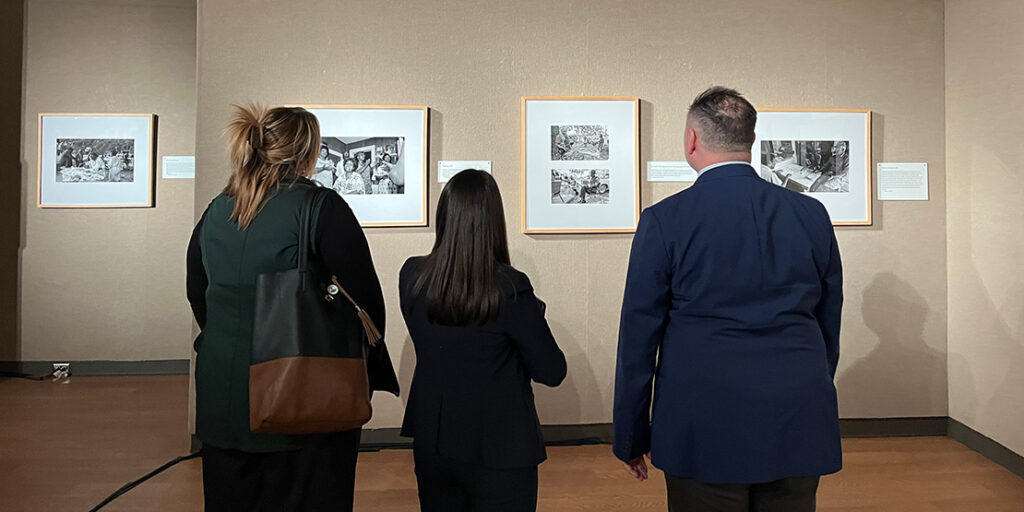
On February 8 and 9, Orton brought his exhibit “The Upshaws of County Line: An American Family,” to The Woods, which included two days of discussion, photos from the exhibit in the university’s Mildred M. Cox Art Gallery, the airing of a documentary and presentations on the art of photography for WWU students. The exhibit portrays the story of the Upshaw family, who settled the area shortly after the end of the Civil War in the 1870’s, focusing on the community of descendants that exists in County Line today.
“I discovered that, after Emancipation, not all African-Americans became sharecroppers or domestic help for white people, still relying on whites for their wellbeing,” Orton said. “Some of them organized their own communities out in the woods, called Freedom Colonies. County Line was such a place, and the kind of place I had never learned about in school.”
So Orton spent the next 25 years documenting the community through photographing of the descendants of the original settlers (the Upshaw family), which led to his award-winning book “The Upshaws of County Line: An American Family.” He also became like a family member to the current-day Upshaws, becoming a part of their lives for years. Eventually, the School of Art at Stephen F. Austin University created the photo exhibit, and it has toured the country for many years.
This week, during Black History Month, it came to William Woods.
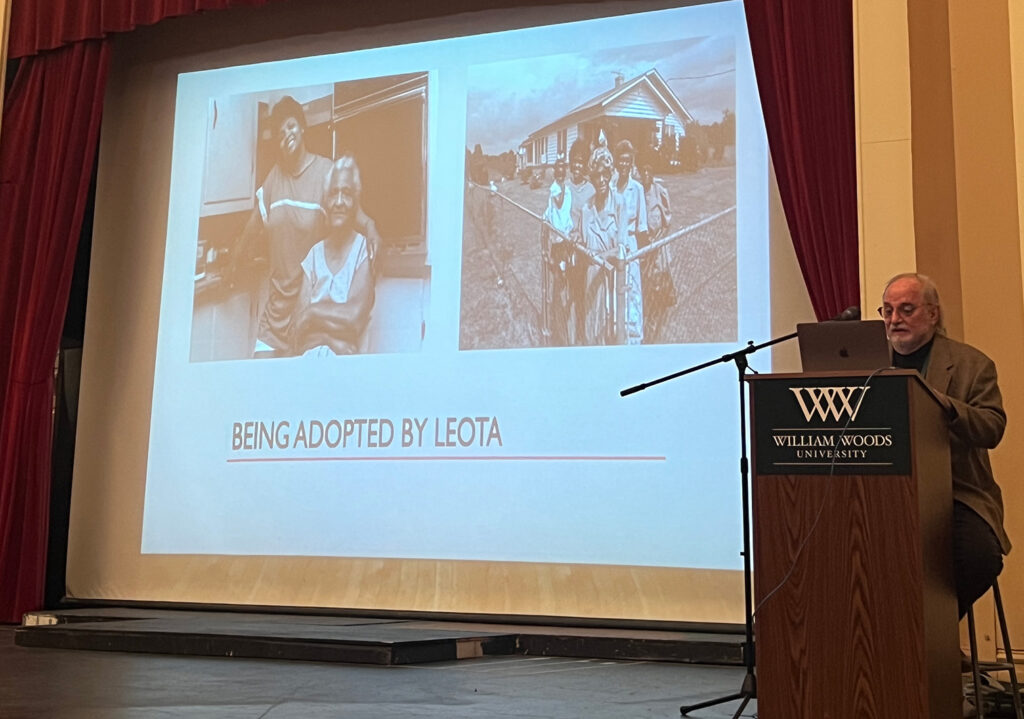
“I am so excited to be a small part of the American story that Mr. Richard Orton brought to us via his candid, respectful, and timely photography masterpiece, The Upshaws of County Line,” said Stephanie Washington, Director of the Office of Diversity and Inclusion at WWU. “So often, we view an ‘American family’ through a historically narrow and exclusive lens. However, Mr. Orton, courageously, yet humbly, allows us to see what “family” looks like from a different perspective. Though he completed this project nearly a decade ago, this display of American beauty, shared with William Woods University and the community of Fulton, Missouri, could not have been aligned more perfectly with the universe.”
Rhondell Tipton, a junior at WWU, agreed.
“I was able to see the portrayal of an American family that from my perspective, you don’t really see as much, and I could see my own family in those images,” Tipton said. “It is really an impressive exhibit, just how they took him in as almost a part of their family; it just means so much to the African-American community.”
It addition to the display of the photo exhibit, the airing of a documentary about Freedom Colonies in Texas, panel discussions and Orton’s presentation on the history and his personal experiences in County Line, he also took the time to speak to WWU Art, film and communication majors about the process of making photo documentaries.
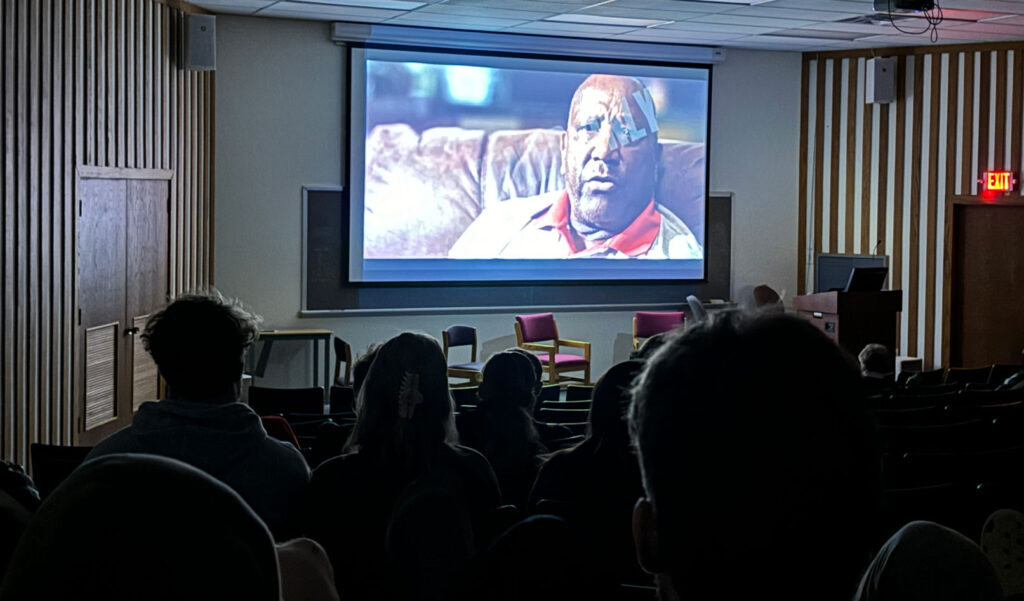
“It is really great to get the chance to hear from highly successful people in our industry like Mr. Orton, to learn from him and find out what it takes to succeed,” said Colin Cossey, a sophomore Film major at William Woods. “I really appreciated his perspective on capturing the moment, and being invisible when shooting photos, as opposed to trying to control the situation. Let the world around me tell the story instead me as a photographer trying to force a story or narrative.”
Bringing Orton and his award-winning exhibit to The Woods was due to a planning committee that included Steve Cooper, Director of the Bachelor of Social Work program; Hannah Bolados, Dean of the School of Humanities; Tony Weed, Dean of the School of Social Services; John Selburg, Director of the Mildred M. Cox Art Gallery and Haley Gilmore, Event Management and Conference Coordinator. It was sponsored by Office of the President; Office of Diversity and Inclusion; the Cox Art Gallery; the Center for Ethics and Global Studies; the Bachelor of Social Work Program; University Advancement and the Schools of Humanities and Social Sciences.
“The Upshaws of County Line: An American Family” photo documentary exhibition will remain on display in the Mildred M. Cox Gallery until March 8, 2024.
